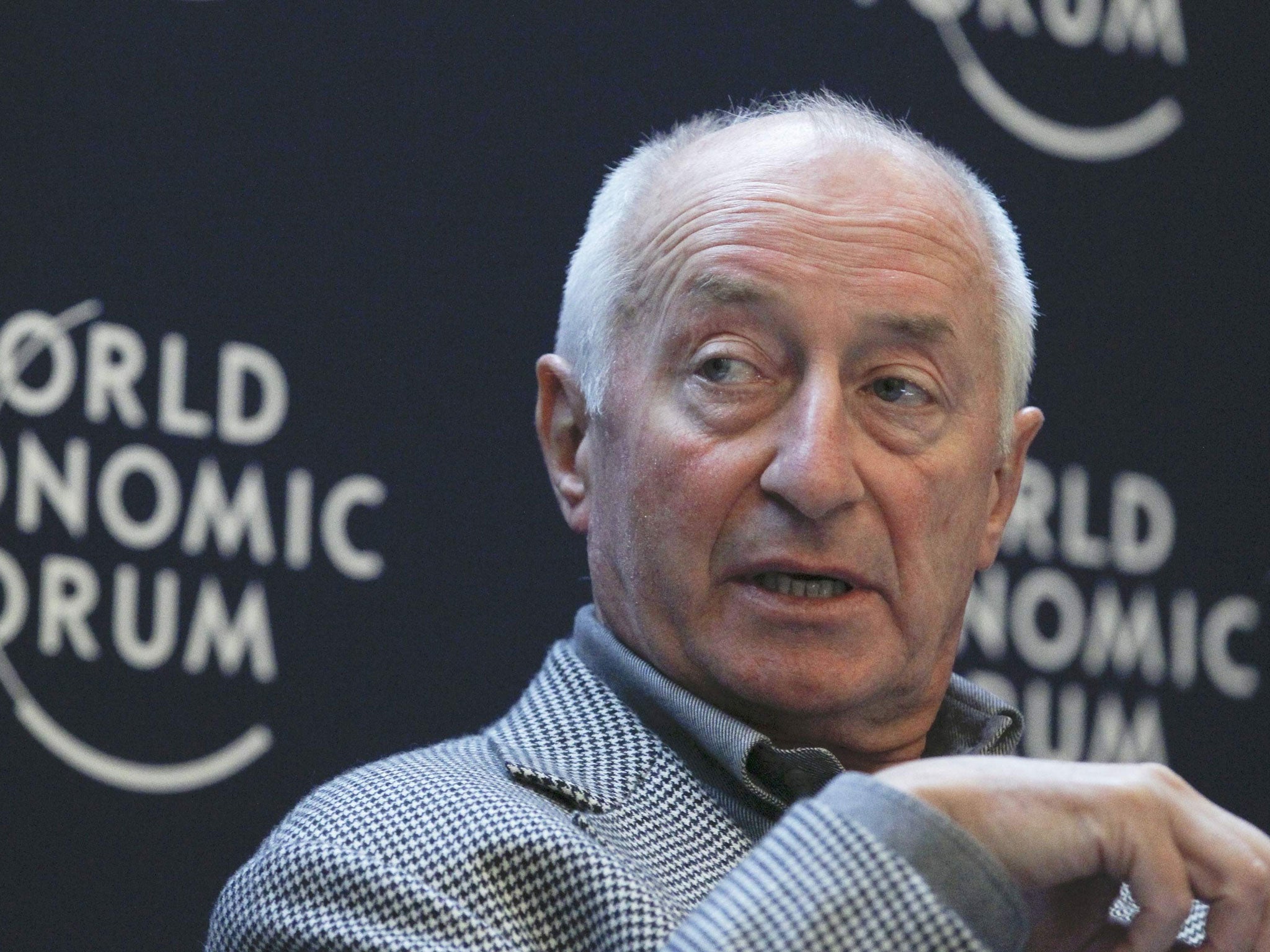Graham Mackay: Businessman who bought ambitiously and transformed a local company into the world's second largest brewers

Graham Mackay was a South African businessman who transformed his local brewing company into SABMiller, the world's second-largest brewery behind the Belgian-Brazilian giants Anheuser-Busch InBev. SAB produces well-known brands such as Grolsch, Peroni Nastro Azzurro, Fosters, Pilsner Urquell and Miller Lite, and has operations in 75 countries with revenues of £21.4bn in 2012. The group produces lager under 200 different labels and is one of the world's largest Coca-Cola bottlers.
Mackay had stepped down as CEO after surgery for a brain tumour in April this year but resumed his role as non-executive chairman in September before again stepping aside due to a sharp decline in health. Described by industry analyst Trevor Stirling as a "titan in the brewing industry", he became chief operating executive of SAB in 1994, managing director in 1997 and CEO two years after that, steering the company's expansion outside South Africa with a number of audacious takeovers, and by moving the group's primary listing from Johannesburg to the London Stock Exchange in 1999. This ensured that SAB had access to more capital and meant potential targets were more likely to accept its shares in a takeover. Although criticised on occasion for paying slightly over the odds for acquisitions, the result was a six-fold increase in SAB's share price since 1999.
Before this, expansion much beyond South Africa's frontiers was impossible due to sanctions imposed on the country's apartheid government. With the release of Nelson Mandela in 1990 sanctions were lifted, and Mackay – regarded by investors and colleagues alike as measured, cerebral, and forward-thinking" – had the foresight to see what the future held. His "old-school gentleman" approach, with one-on-one talks rather than mass presentations, endeared him to many.
Mackay realised that the multinational breweries loomed large in certain geographical locations, with Europe dominated by the likes of Guinness and Heineken. So he looked to Central and Eastern Europe, where the fall of Communism offered opportunities and allowed SAB to cheaply purchase poorly-run, state-owned beer companies, taking, for example, controlling interests in Pilsner Urquell and Radegast in the Czech Republic.
Encouraged by this, Mackay ventured into other parts of the world overlooked by the main industry players, making further acquisitions in Africa, Asia, India and Central America. The deals became bolder, and in 2002 he infiltrated the American market by buying Miller Brewing of Milwaukee for $6.5bn, following which the group rebranded itself as SABMiller. This transformed SAB from a local company in one emerging market with no rivals to global giant.
Mackay's last deal was the $10.5bn takeover of the Foster's Group in 2011; his gravitas and expertise meant that he inked the deal for the Australian brewery without even having to visit the country. SABMiller now has a global footprint spread over all the major fast-growing markets, including Latin America, China and Africa, as well as across Europe.
Born in Johannesburg in 1949, Graham Mackay was one of six children to James and Mary Mackay, who ran a farm. However, during the Second World War James served as a pilot and was shot down at El Alamein then held in a PoW camp; this affected him physically and mentally and he "went off to find his soul in the African bush on plantations." Consequently, living a frugal existence, the family moved about, living in Swaziland, Natal and the former Rhodesia. Graham recalled that this "did affect my outlook on life."
Mackay was educated at St Andrew's College, an independent Anglican boarding school in Grahamstown and , the University of Witwatersrand in Johannesburg, where he obtained a BSc in Engineering (1972) before completing a commerce degree in 1977. A year later he joined South African Breweries Ltd to streamline their computer systems; under apartheid the company had evolved into a sprawling conglomerate of local interests ranging from supermarkets and textile factories to casinos and hotels. He became general manager for Northern Transvaal and the Orange Free State in 1982; managing director in 1987; and chairman of the South African operations in 1992.
He held a number of positions outside SABMiller, including senior independent non-executive director of Reckitt Benckiser, the health and hygiene giant, and a directorship of the tobacco firm Philip Morris International. Between 1995 and 2003 he was deputy chairman and then chairman of Standard Bank Group, one of South Africa's largest financial services groups which operates in over 32 countries. Mackay attributed his success to good management. He believed a global business employing 70,000 people needed "decentralised decision-making, close to the markets", and that his best advice was "be prepared to work very hard; try things out and adjust as you go; your customers have to trust you, so give them reasons to do so".
In his free time, Mackay was a keen bridge and squash player and enjoyed the works of Verdi and Puccini. He declared Pilsner Urquell to be his favourite beer.
Graham Mackay, businessman: born Johannesburg 26 July 1949; married twice (three sons from each marriage); died Hampshire 18 December 2013.
Subscribe to Independent Premium to bookmark this article
Want to bookmark your favourite articles and stories to read or reference later? Start your Independent Premium subscription today.

Join our commenting forum
Join thought-provoking conversations, follow other Independent readers and see their replies